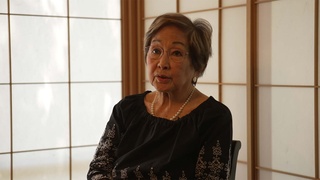Interviews
Fitting back into American life
Well, all my cousin in Los Angeles brought up by my uncle and you know he was more or less strict Japanese way of bringing kids up. Family-oriented and then so when brother and I came to Los Angeles, I think we were able to mold in very nicely with the family. They took us in as another brother. So I really didn’t…don’t feel major difference over culture-wise. But at the same time, there’s freedom -- the freedom that United States was emphasizing to everyone at the time. While I was working on occupation forces, I think I had the feeling coming into my system or my heart and so by the time I came here to the United States, the freedom of speech or freedom of whatever did not came in as a surprise or nothing. Yeah, I was able to mold into it, I think. Yes, Yes.
Date: June 17, 2008
Location: California, US
Interviewer: Janice Tanaka
Contributed by: Watase Media Arts Center, Japanese American National Museum


